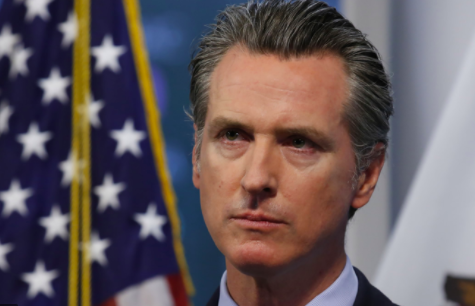It wasn’t that many months ago that some pundits were writing Gavin Newsom’s political obituary. A GOP-led recall campaign was gaining traction, and some polls showed the vote too close to call. Newsom was doing himself no favors by acting aloof and disconnected from the political process.
And tonight? Newsom—and the Democratic Party in California and nationwide, which went all out to block this recall—are triumphant. It appears Newsom will win by at least 30 points.

That vote of confidence will make it much more difficult for any progressive challenger to take on the incumbent governor in 14 months, when he will be up for re-election. And any Republican will have a very, very difficult time making the case for a change.
This is what happened in 1983, when then-Mayor Dianne Feinstein faced a recall in San Francisco. She defeated it, resoundingly—and any hope of a progressive challenging her in the next election vanished.
The biggest factor in Newsom’s victory was Larry Elder. Until he entered the race (and he almost didn’t make the cut) Newsom was having trouble linking the recall and his opponents to Donald Trump.
After Elder became the GOP frontrunner, that was easy.
But Newsom needs to have a moment of self-reflection here.
He turned things around and won handily for two reasons: He had endless money (more than $70 million). And there was a massive outpouring of grassroots organizing to get out the vote.
Some of that money came from real-estate and telecom. But the single biggest source of his support—$13 million—came from organized labor. Health-care unions alone put up $3.5 million of their members money.
And it was labor and generally progressive local party groups that did the real work of convincing Democrats that this was a real threat and they should vote.
Remember, earlier this summer there was a huge “enthusiasm gap.” Republicans cared more about getting rid of Newsom than Democrats did about keeping him.
It wasn’t the big money that changed the situation. It was the people who were not huge Newsom supporters, or people who he has completely let down, who shook off their doubts and made sure the GOP didn’t win this one.
(Newsom ran as a supporter of single-payer health care, getting him strong support from the California Nurses Association. He backed off on that pledge almost immediately after getting elected. CNA still went all out to defeat the recall. He totally screwed tenants in a housing deal this year; they still voted to keep him in office.)
If Newsom goes back to taking that grassroots support for granted, there are going to be a lot of angry people talking about alternatives next year. And since Newsom shows no signs of ending his career when he finishes his time in Sacramento, he’s going to have to answer to those people who saved his political future when he (inevitably) tries to run for president.
This, of course, has both national and local implications.
If California is any indication (and in the long term, it tends to be a trend-setting state) then Democrats can do very well running against Trump, even if he’s not on the ballot. At least in this state, a connection to Trump is political poison.
That, of course, puts Republican candidates in a tricky position. Republican primary voters still like Trump, and it’s hard in many districts to win a primary while opposing Trumpism. We shall see how this plays out in the Congressional midterms.
On a local level, the overwhelming rejection of a costly and pointless recall in the middle of a term could help District Attorney Chesa Boudin make the case that the proper time to hold an election is on Election Day.
The normal Election Day.






